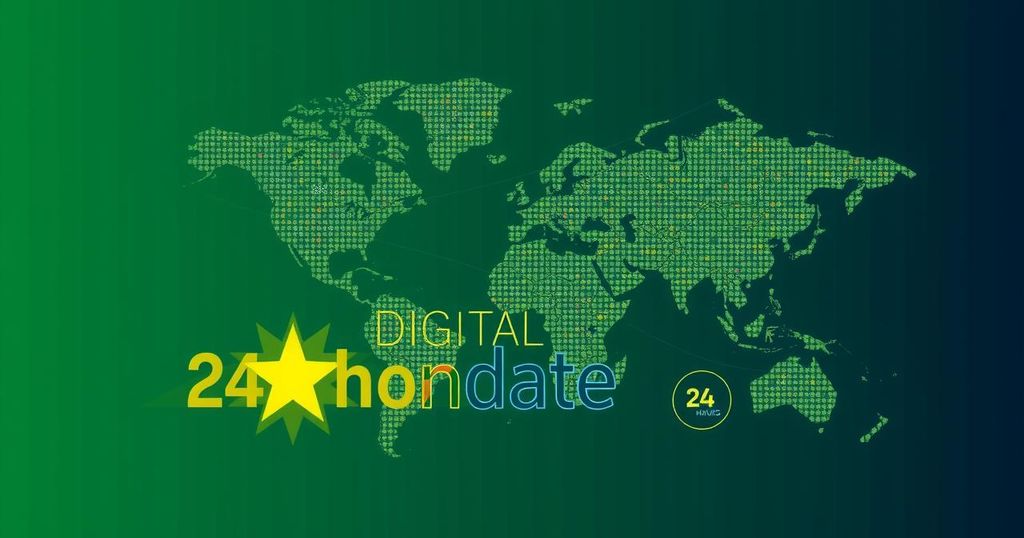The upcoming Ghanaian presidential election is marked by significant economic challenges, highlighted by a high unemployment rate and inflation over 54%. Candidates John Mahama and Mahamudu Bawumia are addressing these concerns with distinct economic strategies: Mahama advocates for a “24-hour economy,” while Bawumia promotes a “digital economy”. Public disillusionment poses challenges for both, but polling suggests a competitive race ahead.
As Ghana approaches its presidential election, significant economic concerns dominate the discourse. Nathaniel Qainoo, a 29-year-old mechanic who graduated as an accountant, encapsulates the frustration of many Ghanaians who face employment challenges amid a worsening economic crisis. The country is still reeling from a debt default, soaring inflation at 54%, and a depreciated cedi, which has lost 70% of its value over eight years.
The main contenders are former President John Mahama and current Vice President Mahamudu Bawumia. Mahama plans to “reset” the economy and create a “24-hour economy,” promoting evening jobs to boost national productivity. Conversely, Bawumia aims to establish a “digital economy” by fostering tech entrepreneurship and supporting skills training for youth.
Despite Bawumia’s expertise as an economist, the economic decline has undermined his previous reputation, leading him to adopt a more relatable persona on the campaign trail. Both candidates face the challenge of presenting viable plans to address Ghana’s fiscal pressures while under scrutiny from voters who remember their past performances.
The upcoming vote comes at a time when public confidence is low, as many young Ghanaians, like Mr. Qainoo, consider emigration due to scarce job opportunities. A recent poll indicates a competitive race, with Mahama ahead but not guaranteed to avoid a run-off. Each candidate must convince the electorate that they can deliver effective solutions to the economic challenges faced by the nation.
In 2022, Ghana experienced a severe economic crisis, marked by a government default on debt repayments and international credit downgrades. The effects of this crisis have led to high inflation rates and significant depreciation of the local currency, the cedi. Many citizens, particularly the youth, are discouraged by the escalating hardship and dwindling employment prospects, prompting discussions about emigration. As the country approaches an election, voters are searching for solutions to their economic woes, creating an intense political climate where the economic strategies of the candidates are crucial.
In summary, Ghana’s upcoming presidential election is significantly influenced by economic issues that many voters associate directly with their daily hardships. Both John Mahama and Mahamudu Bawumia present contrasting economic visions: one focused on revitalizing the economy through nighttime jobs and the other on transitioning towards a digital economy. As voter engagement remains uncertain amidst a climate of disillusionment, the candidates must effectively address the electorate’s concerns to secure their support.
Original Source: www.bbc.com







